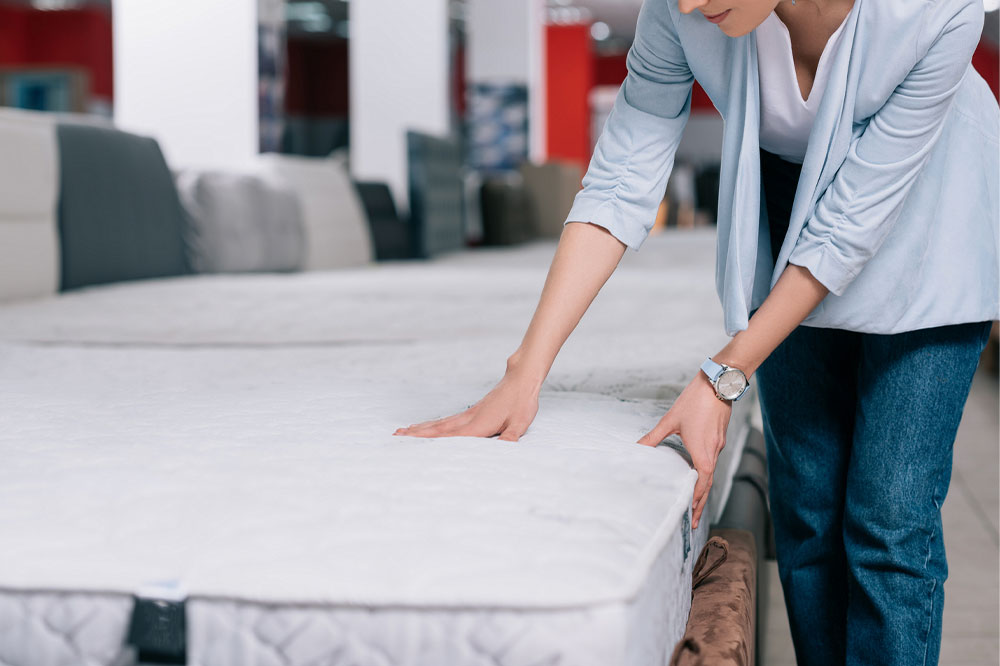9 secrets to a good night’s sleep

To maintain good health, it is important to create a healthy sleep and wake-up schedule. Poor sleep can negatively impact hormonal balance, exercise performance, and even brain function. While many factors can interfere with the quality of your sleep — from responsibilities and stress to illnesses — there are several things you can do before bed for a good night’s sleep. Here are nine secrets and tips to help you sleep better at night.
Reduce your blue light exposure in the evening
The body has a natural circadian rhythm or a time-keeping clock, which governs the best time to sleep and wake up. Working according to this clock can help improve your productivity and energy levels during the day, as well as sleep quality and duration during the night. Exposure to bright lights in the evening or night can upset this rhythm and affect melatonin levels in the body.
Blue light is emitted by several electronic devices such as smartphones, laptops, and TVs. While avoiding them entirely during the evening may be difficult, the following tips may help:
- Wear glasses that block blue light
- Download an app on your phone or laptop that can block blue light
- Stop watching TV and turn off any bright lights at least two hours before bed
Don’t drink any liquids before bed
Drinking water or any liquids before bed is likely to increase your chances of waking up in the night to pass urine, thus disturbing your sleep. While it is important to stay hydrated, try to avoid drinking large amounts of fluids 1-2 hours before bedtime.
Set your bedroom temperature
The temperature of your room plays a major role in affecting the quality of your sleep. You may not be able to fall asleep comfortably when it’s too warm or too cold. For most people, 60-70℉ is the most comfortable temperature to induce quality sleep.
Apart from temperature, to improve your sleep quality, make sure your room is a quiet, clean, and enjoyable space by eliminating distractions such as excessive noise or light.
Create a comfortable sleep schedule
Developing a pre-sleep routine — that you follow even on weekends and holidays — can help give a signal to your body that the day is over and it is now time to rest. Unwinding before bed by listening to relaxing music, reading a book, taking a hot bath, meditating, or following deep breathing and visualization techniques can help you fall asleep faster and sleep better.
Invest in a quality mattress and pillow
Opting for proper bedding such as a mattress, sheets, quilt, and pillow can also help you create a comfortable sleep environment and prevent back and joint pain. This, however, is entirely subjective, so, try to find bedding essentials that work best for your sleep. Many mattress companies now allow trials, so you can find your ideal fit before making a big purchase. Moreover, it is recommended to change your bedding every 5-8 years.
Avoid caffeine in the evening
Caffeine has been associated with enhanced focus, energy, and performance as it is a known stimulant. When consumed too close to bedtime, caffeine can interfere with your nervous system, and may not allow your body to relax completely at night, impacting your sleep quality. So, after 4 pm, switch out your cup of coffee for a decaffeinated version or opt for green tea.
Increase your exposure to bright light during the day
If you’re keen on keeping your circadian rhythm healthy to improve your quality of life, increase your exposure to bright lights during the day. According to research, exposure to bright light during the day has been associated with improved sleep quality and duration for people with insomnia. When possible, aim to get a few minutes of sun exposure daily or invest in artificial bright light devices.
Limit naps during the day
Taking long naps during the day can disturb your circadian rhythm, which may negatively affect the quality of your sleep at night. According to research studies, people can end up feeling sleepier during the day after a long nap. If you’d like to take a nap during the day, try to limit it to 30 minutes or shorter.
Try natural remedies for better sleep
Several traditional natural remedies can help improve your sleep quality. Some popular options include:
- Melatonin
Melatonin is our sleep hormone, which instructs the body when it is time to relax and go to sleep. It is considered a popular sleeping aid, particularly for people with insomnia. It is also useful for those who are adjusting to a new time zone as it helps their circadian rhythm return to normal. Foods rich in melatonin include eggs, fish, nuts, mushrooms, cereals, and germinated legumes. - Amino acids
According to research, amino acids like glycine and L-theanine can help improve sleep quality. The best food sources of glycine are red meat, seeds, turkey, chicken, pork, peanuts, granola, quinoa, hard cheese, soybeans, almonds, eggs, and beans. On the other hand, green tea is a natural source of L-theanine. - Magnesium
Magnesium is an essential mineral for various body processes. To regularly intake the recommended amount of magnesium, include natural sources of magnesium like dark chocolate, avocados, cashews, almonds, Brazil nuts, legumes, tofu, wheat, oats, barley, salmon, mackerel, halibut, bananas, and leafy greens such as spinach, kale, and collard greens in your daily meals. - Lavender
As a herb, lavender has calming and sedentary effects, which can help improve sleep quality. This popular aromatherapy remedy only requires you to lightly spritz lavender oil in a well-ventilated bedroom to improve deep, slow-wave sleep.
However, speak to your doctor and check for any allergies before trying these natural remedies. Further, it is advisable to try only one home remedy at a time.


